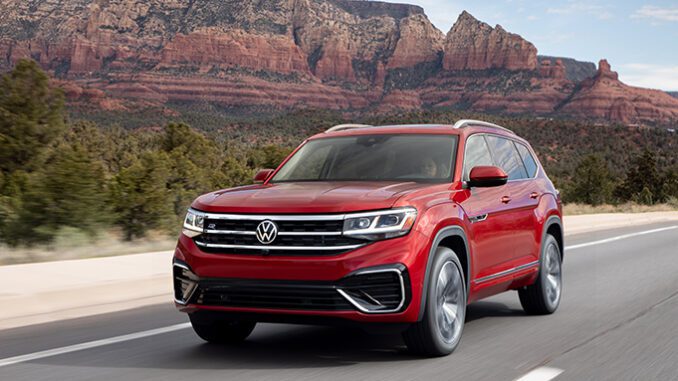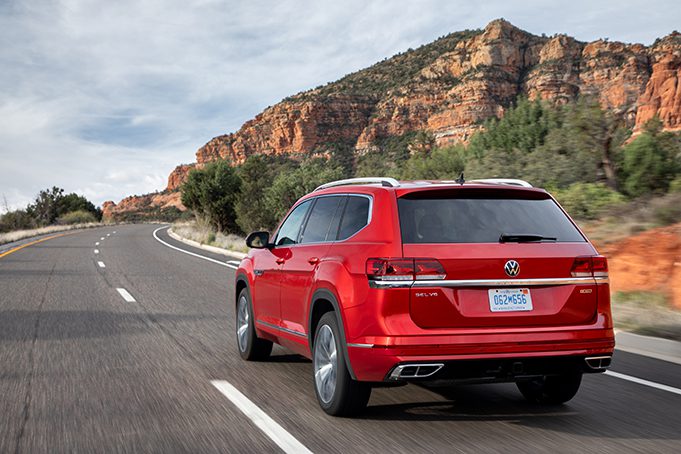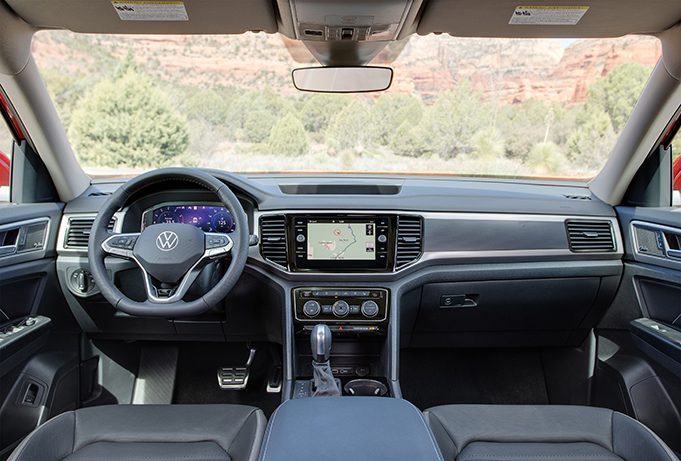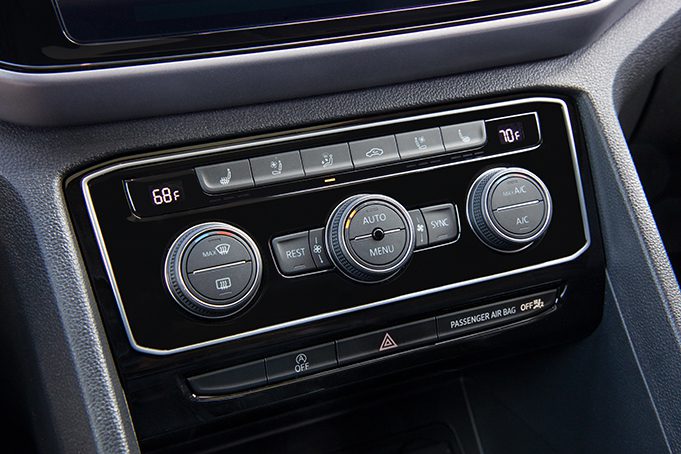
BOSTON — Some car brands know exactly what they’re about, who their customer is, and why they exist.
Jeep, for example; or Lamborghini; or Subaru — they’re all rock-solid brands that stand for something, even if it’s just sensible all-wheel-drive wagons.
But sometimes, you get a brand that’s more confused. That’s what I found with Volkswagen and my test car this week, the three-row Atlas SUV. I can’t figure out what VW actually stands for these days.
Twenty years ago, Volkswagen was all about being quirky and selling Jettas to up-and-coming young millennials, Beetles to aging hippies, and Golfs to just about anyone.
This was great because the cars were good, and they had a delightful purple-and-red color scheme on the inside. They seemed better built than the competition, and people felt they’d gone upmarket by picking out a VW.
And until the world discovered crossovers, all was good for Volkswagen. But then Toyota and Honda started selling CR-V and RAV4 models by the shipload, and Volkswagen didn’t really notice for the better part of a decade. By the time they did, it was too late.
Volkswagen tried to release a whole bunch of, it must be said, rather uninspired crossover SUVs. The Midas touch was gone, and sales began to slip. They released weird crossovers with unpronounceable names like Tiguan. The appealing cuteness of the Jetta and Beetle was replaced by bland and boring.

Eventually, Volkswagen realized that what Americans wanted wasn’t sensible European cars — they wanted gigantic SUVs to haul all their stuff around. Finally, the product planners in Wolfsburg gave them what they wanted in the Atlas. It’s a midsize three-row SUV that lives up to its name, and it was my test car this week.
I had a top-of-the-line V6 SEL R-Line that priced out to an alarmingly high $46,915. It was assembled at Volkswagen’s Chattanooga, Tenn. facility, where the Volkswagen ID.4 electric car will soon be assembled as well.
The first thing I noticed about the Atlas is that while it is substantial, the interior is not as well laid out as it could be. It seems a terrible waste of all that space, but it lives up to its name.
Still, the enormous sunroof extends over the rear-seat passengers, and if you fold the third-row down, there is oodles of cargo space.
There’s a wireless charging spot for your phone in a cubby in front of the gear shifter. That’s nice, but you won’t be using it very much since the Atlas has wired CarPlay and Android Auto, and you have to plug in your phone to use those. And you’ll want to since the built-in infotainment system is a bit dated.
The 8-inch screen is lovely but could be larger, and the volume knob is infuriatingly labeled with a power icon (the little circle with a bar sticking out the top) that spins when you turn the volume. And when you’re a lunatic like me, you have to turn the knob to whatever loudness is required to make the icon face the proper direction. Or you can just use the steering wheel buttons, whichever.
The 276-horsepower V6 engine is adequate if uninspired, though it is smooth and quiet. After all, this is a European SUV, and while it’s not exciting to drive, it’s very German and steers with precision.
Automatic emergency braking is standard, as is blind-spot monitoring and rear cross-traffic alert. Annoyingly, adaptive cruise is an option but not standard.
It checks all the boxes for a family hauler, but not enthusiastically so. The Atlas is fine. If you buy it and don’t try anything else, you’ll probably like it. But that’s precisely the problem.
It’s a car that people buy when they haven’t tried anything else, like a Hyundai Palisade or Mazda CX-9, vehicles that are far better and similarly priced.
The Atlas is like broccoli: It’s okay, but you’re not going to get excited about it unless you smother it in cheese and bacon or something.
And I don’t think that’s enough for Volkswagen. The excitement of the early 2000’s Jetta and Beetle are long gone, and what’s left is a selection of weirdly named crossovers, and this Atlas and a slightly smaller version inventively named the Atlas Cross Sport.
The Atlas starts in the low $30’s and runs up to around $50K, and there are a lot better cars in this wildly competitive segment. Volkswagen knows how to make great cars; I know because I’ve tested them. Sadly, the Atlas isn’t great; it’s merely acceptable.
But maybe, for some buyers, acceptable will suffice.





